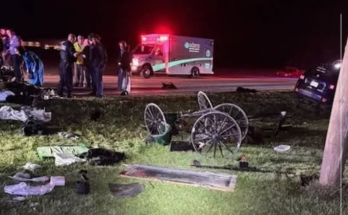
When I turned thirty-six, I began to notice the way people’s voices changed when they talked about me. Not to my face, of course — but in the quiet hum of neighborhood conversations, at the corners of tea stalls, outside the local market, or on evening walks when curtains were half-drawn, the whispers found their way to my ears.
“At that age and still without a wife?” they murmured. “He’ll be a bachelor forever.”
Those words echoed louder than I cared to admit. In my younger years, I’d brush such talk aside with a shrug and a smile, telling myself I didn’t owe anyone an explanation. But as I approached my late thirties, their voices gained weight. I began to feel them pressing against my chest, like an invisible hand reminding me of everything I hadn’t done — the life I hadn’t built according to their expectations.
I had always imagined marriage would come naturally, the way sunlight pours through a window without being asked. But life doesn’t always follow the script people write for you. My twenties were spent chasing a career, climbing invisible ladders in a world that rewarded ambition over sentiment. My early thirties were a blur of responsibilities — aging parents, work transfers, a few failed relationships that began beautifully but unraveled when priorities clashed.
There was Lena, a soft-spoken woman who loved quiet mornings and poetry. We spent two years together, but our paths diverged when she wanted to settle in a small town while I was tied to my work in the city. Then came Mara, full of fire and laughter, but we burned too brightly, too fast, leaving only ashes when neither of us could compromise.
So I stayed single. Not because I feared love. Not because I didn’t believe in it. But because I refused to build a life on a shaky foundation.
Yet society doesn’t see the story behind a man’s silence. It only sees the empty ring finger.
At family gatherings, the questions came wrapped in smiles. “When are you bringing someone home?” “Don’t you get lonely?” “You’re not getting any younger, you know.”
Some said it kindly, others with that sharp, pitying undertone that cut deeper than open judgment. The hardest part was watching how my answer — “I just haven’t met the right person yet” — made people exchange knowing looks, as if “the right person” was a childish excuse rather than a valid truth.
Loneliness, I learned, isn’t just being alone in your home. It’s standing at the edge of other people’s lives and watching them build families, raise children, share anniversaries, while you walk back to your quiet apartment with no one waiting at the door. It’s hearing laughter through the walls at night and realizing none of it belongs to you.
But here’s the truth no one whispered about: my life, though different, wasn’t empty. I traveled. I learned new languages. I spent quiet weekends reading books most people never have time for. I cooked for myself, not because I had to, but because I enjoyed the ritual. I cared for my parents in their final years, a gift I’ll never regret. I lived on my own terms — something many of the married men who gossiped about me couldn’t say.
Still, the murmurs persisted. “Something must be wrong with him.” “Maybe he’s too picky.” “He’ll regret it when he’s old.”
I won’t pretend their words never stung. There were nights I lay awake, staring at the ceiling, wondering if I’d missed some invisible deadline — the point in life when love is easiest to find. I thought about what it would feel like to have someone beside me, sharing the weight of the day. Sometimes the silence in my apartment felt so loud it almost rang in my ears.
Then, on an ordinary autumn morning, when I least expected it, something shifted.
I met her at the bookstore I often visited — a woman in her thirties, standing in the poetry aisle, her fingers grazing the spine of a book I loved. She had warm eyes and a soft laugh. We began talking about literature, then music, then the small things that make life bearable. There was no thunderclap or cinematic rush, just a calm certainty, like finding a familiar melody in a foreign place.
We started meeting often — coffee, walks in the park, late-night phone calls that stretched into dawn. She wasn’t what I had imagined when I was younger. She was something better: real, thoughtful, scarred in her own ways, but strong. She too had faced whispers — about being “too focused on her career,” about “waiting too long.” And perhaps that’s why we understood each other so well.
When I introduced her to a few neighbors, the whispers changed tune. “Oh, so he is seeing someone!” “I told you, he was just waiting.” “Better late than never.”
It was almost amusing — how quickly people rewrote the story when the ending suited their expectations. But this time, I didn’t care what they said. For the first time in years, the noise around me felt small compared to the quiet joy inside me.
We didn’t rush. There were no grand declarations or desperate timelines. We built something slow, steady, deliberate. At thirty-seven, I learned love can bloom outside the narrow window people expect. That there’s no clock ticking over your heart except the one you let others wind for you.
When we eventually married, a few of those same neighbors came up to me with broad smiles. “See? We knew it would happen for you!” “All in God’s timing.”
But the truth is, it didn’t “just happen.” I chose to wait for something real. I chose not to settle out of fear. I chose to live my life fully even when I was alone — and because of that, I met someone who loved me for exactly who I was, not who I was supposed to be.
Now, when I hear people whisper about others — the unmarried woman in her forties, the man who lives alone, the couple who choose not to have children — I feel a quiet surge of defiance on their behalf. People always talk. But their timeline isn’t yours.
I’m no longer thirty-six, standing in the shadow of murmurs. I’m older now. Wiser. And if I could speak to my younger self, I’d tell him this:
Your worth isn’t measured by how closely your life follows someone else’s script. The whispers will always be there. But they’re just echoes — faint, fading, powerless if you don’t let them in.
And sometimes, the love that’s worth waiting for doesn’t come when people expect it. It comes when you’re ready to receive it.
So when neighbors once said, “He’ll be a bachelor forever,” they weren’t predicting my destiny. They were just looking at a story they didn’t understand. My life, it turns out, was just beginning

